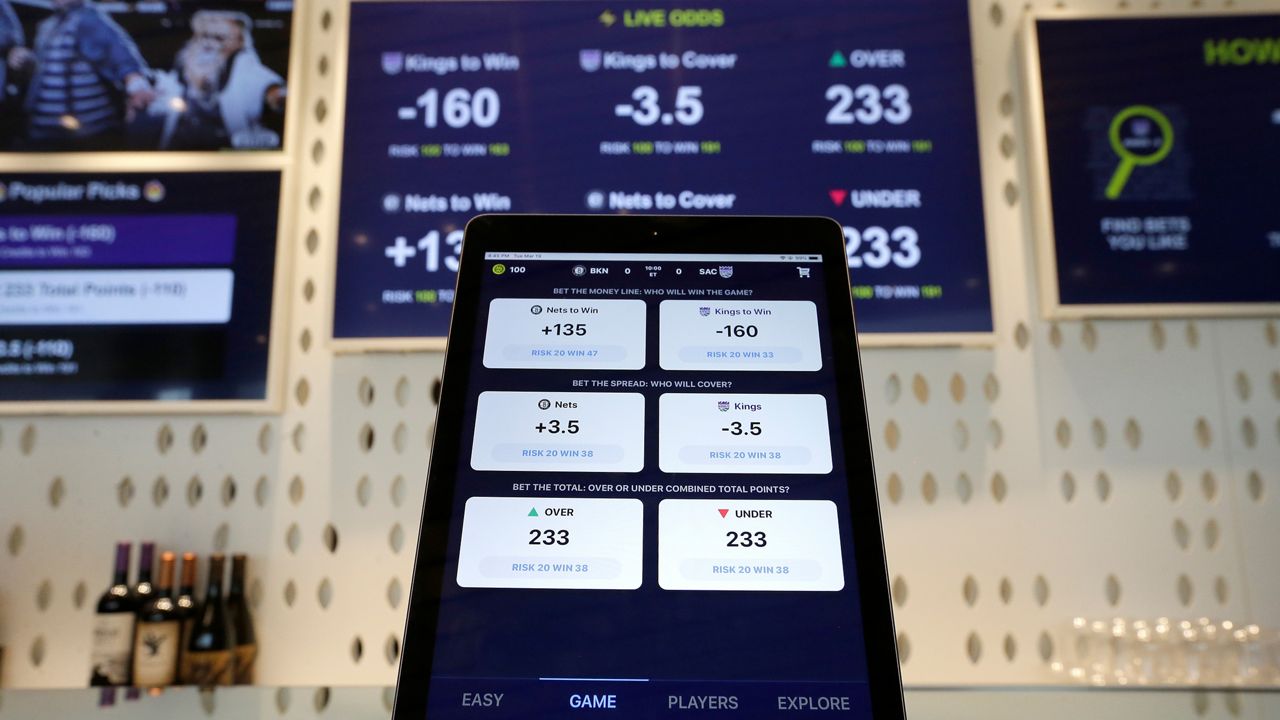Sports fans are well familiar with nearly ubiquitous betting ads that air during games.
And now Rep. Paul Tonko, a Democrat from the Capital Region, wants to rein them in.
Tonko on Thursday announced legislation that would ban the advertising of sportsbooks on any medium regulated by the Federal Communications Commission. The proposal was made days before the Super Bowl, typically one of the biggest sports betitng events of the year, is held this Sunday.
"Between the plays, the halftime show, and the excitement, tens of millions will be bombarded by ad after ad from DraftKings, FanDuel and others promising so called ‘risk free’ or ‘no sweat’ bets in their ruthless pursuit to get new customers hooked on their products,” Tonko said. “In the years since the Supreme Court legalized sports betting, these unfettered advertisements have run rampant, with betting companies shelling out billions to ensure they reach every screen across America. These ads pose a particularly dangerous threat to adolescents and young adults unaware of the risks involved in gambling, and to individuals prone to addiction.”
The bill is modeled after legislation that banned tobacco advertising.
The U.S. Supreme Court in 2018 legalized sports betting, and since then 36 states moved to allow wagers on sporting events. New York's market is one of the most lucrative, with the handle from mobile sports betting reaching more than $1.7 billion in January, shattering the record of more than $1.6 billion from a year ago.
Tonko's district includes Saratoga Springs, which is home to the thoroughbred racetrack as well as a racino.
“The excessive, uncensored promotion of these sites needs to be put in check," Tonko said. "My legislation puts a halt to this dangerous practice and sends a powerful message to the online sports betting advertisers. Congress must take the necessary steps to reel in an industry with the power to inflict real, widespread harm on the American people.”
American Gaming Association Senior Vice President Chris Cylke in a statement said the organization's members "adamantly oppose" any measures that seek to limit or ban casino gaming advertisements.
"Any such effort only serves to reduce awareness for legal options to the benefit of illegal, offshore operators and the detriment of consumers and communities," he said. "The proposed legislation would violate well-established free speech protections and undermine the expertise of more than 5,000 state and tribal gaming regulators across the country."
Cylke also pointed to efforts to reducing problem gambling and efforts for restrictions on target audiences, outlets and content.
"Congress should instead focus its attention on combatting the predatory and pervasive offshore illegal market that offers no responsible gaming measures, age verification or problem gambling resources," Cylke said.



